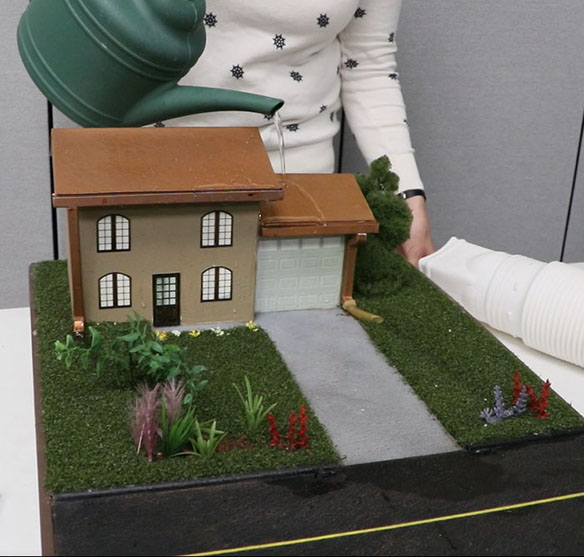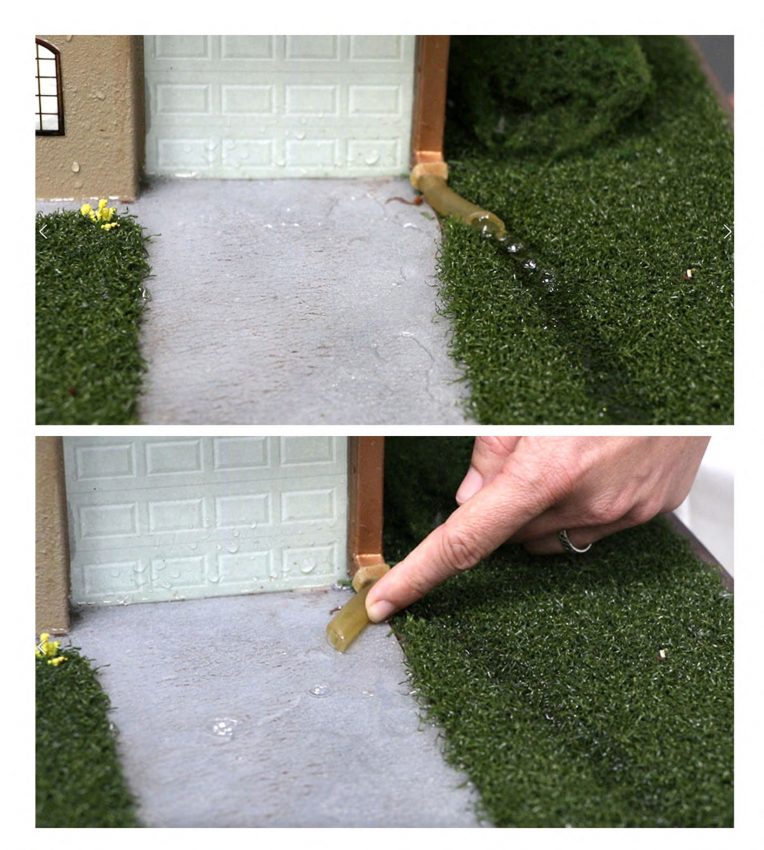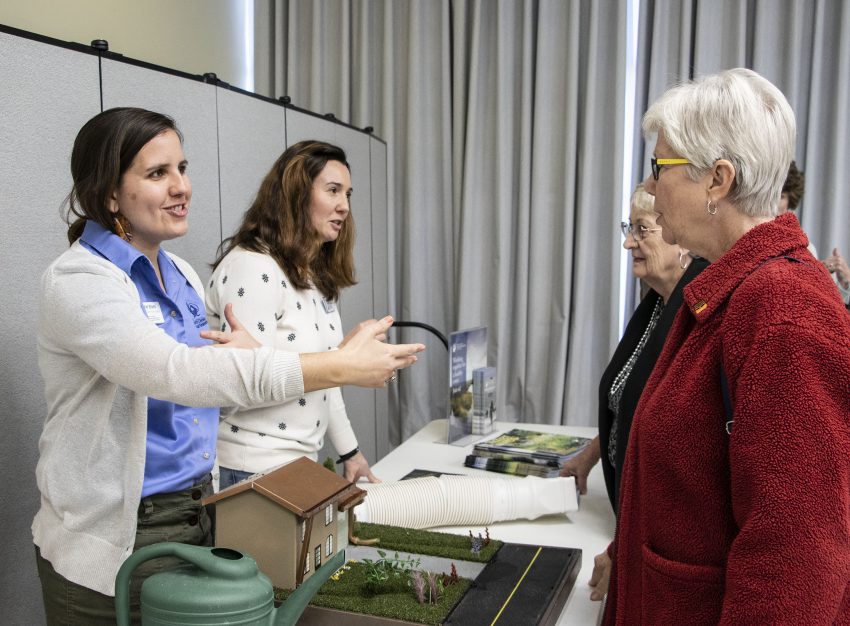Last week, staff from the North Carolina Coastal Federation’s central office gave a presentation on rain gardens at the Beaufort Garden Club’s January meeting. The Garden Club, which celebrated its 60th anniversary on Jan. 9, is a volunteer group that works to maintain public gardens, promote good gardening practices and conserve the natural beauty of the town of Beaufort.

During her presentation, Rachel Bisesi, coastal education coordinator for the federation, poured water over a model house and rain garden to show an example of stormwater runoff. As the water trickled down the roof, it was funneled into a miniature gutter system where it emptied from the base of the spout and spilled out over the driveway and down into the street.
“But if you were to hook up this downspout diverter,” said Bisesi, indicating a small tube at the base of the gutter, “you reroute where that gutter water is going into your landscape. Then it can help reduce the amount of water that could become polluted runoff.” With a gentle nudge, the tube sent the water running into the green turf of the nearby yard, where it was soaked up like a sponge. The tiny river of water running down the driveway had stopped.

Actions as simple and inexpensive as adding a downspout diverter to a gutter can reduce runoff and resulting pollution of nearby waterways by 50-90 percent.
Bisesi went on to talk about the benefits of rain gardens, “They help to capture the rainwater and allow it to infiltrate into the ground instead of becoming polluted runoff.” Rain gardens use strategic landscaping and vegetation to reduce stormwater runoff by 90 percent or more, which means less erosion, reduced flooding and natural treatment of stormwater. They are perfect for yards with low-lying areas and natural depressions that would otherwise flood with heavy rain.
Additionally, using native plants that “like to have their feet wet” can lower costs and need for maintenance. “After the plants establish themselves (about a year), the rain garden does a good job of taking care of itself since native plants are accustomed to local conditions,” said Bisesi.
After the presentation, one local gardener, Monica Hunter, shared her own ingenious water-smart ideas: a downspout-watered oak tree and a tropical ‘drip irrigation’ garden. Hunter already had a downspout diverter attached to her gutter, but rather than simply sending the excess rain water into her yard, she’s been using it to water her big Live Oak tree.

“They like that extra water,” she said. But Hunter has extended her water-wisdom to other areas of the yard as well, making clever use of the condensation from her air conditioning unit.
“I put bananas next to it because they love water. It’s amazing how much water comes out of an air conditioner every day.” Hunter says that her banana garden has been growing and thriving there for years.
“I’d like to have a little water garden like this, though,” Hunter said looking at the model rain garden. “Everything’s so low where we live; that’s the problem.” A problem that we hope Hunter and the rest of the Beaufort Garden Club will see as an opportunity for water-smart landscaping.
If you’d like to learn more about rain gardens, check out our gardening magazine, Smart Yards, and watch for volunteer opportunities to help us build rain gardens around the coastal community.
